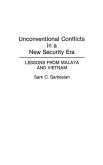Written for students of Middle Eastern politics and other readers who seek to understand why a solution to the Arab-Israeli conflict still seems so remote, this book examines how the question of physical security has constituted the most fundamental concern of Israel since the country came into being in 1948. The author's immediate purpose is to provide the reader with the necessary background to understand why Israel has proved reluctant to agree to the numerous peace plans and processes proposed over the years, demonstrating that--at least from the predominant Israeli perspective--each of these plans posed unacceptable risks to Israel's security. Sicker shows that there has been a remarkable consistency in actual security policy throughout Israel's history, regardless of which party was in power and irrespective of the significant differences in declared policy between the country's left and right governments. He explains why Israel has consistently refused to define the limits of its territorial claims in advance of peace negotiations and explores the influence of the concept of `land for peace' from its origins in the 1947 UN partition plan to the present. Challenging the conventional wisdom, Sicker argues that there is no solid evidence that the Arab states are prepared to accept the legitimacy of Israel and that until this happens there is little likelihood of peace. Further, he asserts that there are no territorial concessions that Israel can realistically offer that will satisfy the Arabs and that peace, therefore, depends upon a fundamental change in the Arab view of Israel's claims. By offering a clear and unequivocal outline of the stakes involved, Sicker enables readers to better evaluate both past, present, and future developments in this strategically critical region.
Hinweis: Dieser Artikel kann nur an eine deutsche Lieferadresse ausgeliefert werden.
Hinweis: Dieser Artikel kann nur an eine deutsche Lieferadresse ausgeliefert werden.








